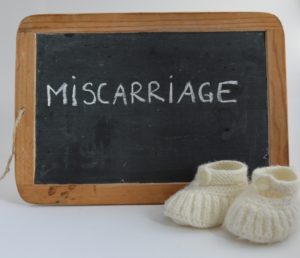The Truth About Miscarriages
 The loss of a pregnancy before the 20th week is what we usually refer to as a miscarriage. Even though we know about 10% to 20% of pregnancies result in miscarriages, the actual number is much higher. This is because most miscarriages happen so early on in the pregnancy that a woman may not have realized she is pregnant. It is a common misconception to think of a miscarriage as a failed pregnancy, but this is not the case. A miscarriage suggests that the fetus is not developing normally, and therefore the body cannot carry the pregnancy to term safely.
The loss of a pregnancy before the 20th week is what we usually refer to as a miscarriage. Even though we know about 10% to 20% of pregnancies result in miscarriages, the actual number is much higher. This is because most miscarriages happen so early on in the pregnancy that a woman may not have realized she is pregnant. It is a common misconception to think of a miscarriage as a failed pregnancy, but this is not the case. A miscarriage suggests that the fetus is not developing normally, and therefore the body cannot carry the pregnancy to term safely.
Symptoms
These symptoms refer to miscarriages that occur before the 12th week of pregnancy:
- Vaginal spotting or even bleeding
- Fluid or tissue passing from your vagina
- Cramping in your abdomen or lower back
It is actually quite common for women to experience spotting or bleeding in the first trimester, and it does not necessarily lead to a miscarriage. However, if you do pass fetal tissue, place it in a clean container and take it to your health care provider, or to the hospital, for analysis.
Causes
The main cause of a miscarriage is the abnormal development of the fetus, and half of known miscarriages are associated with either missing or extra chromosomes. These chromosome problems are not inherited from the parents, but rather occur as the embryo divides and grows.
Chromosomal abnormalities may lead to:
- Blighted ovum: when the embryo does not develop at all
- Intrauterine fetal demise: when the embryo forms bust stops developing before any symptoms of pregnancy are noticeable
- Molar pregnancy and partial molar pregnancy: these pregnancies have to do with abnormal growth of the placenta, and there is either no fetal development, or abnormal fetal development. In both cases, the uterus miscarries the fetus.
In fewer cases, the health condition of the mother may lead to a miscarriage. Health conditions such as uncontrolled diabetes, infections, hormonal problems, thyroid disease, and uterus or cervix problems can result in the mother’s body terminating a pregnancy.
Diagnoses
There is a multitude of tests you can get done to confirm whether you have experiences a miscarriage or not:
- Pelvic exam
- Ultrasound
- Blood, tissue and chromosomal tests
Future Pregnancies
Many women are worried about carrying on future successful pregnancies after a miscarriage, or even becoming pregnant. It is actually possible to conceive even in the first menstrual cycle immediately following a miscarriage, so the main factor to consider in this case is whether you are physically and emotionally ready. You should remember that a miscarriage is rarely a repeat phenomenon: most women experience it once and go on to have successful pregnancies after. Less than 5% of women have two consecutive miscarriages, and even 60% to 80% of women with undiagnosed causes of miscarriage have healthy pregnancies. If you do decide to try and conceive after a miscarriage, be sure to consult your health care provider for guidance.
